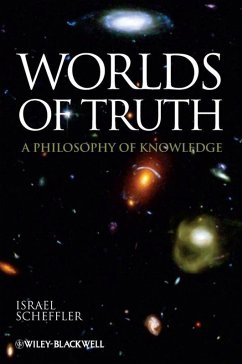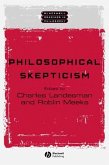Dieser Download kann aus rechtlichen Gründen nur mit Rechnungsadresse in A, B, BG, CY, CZ, D, DK, EW, E, FIN, F, GR, HR, H, IRL, I, LT, L, LR, M, NL, PL, P, R, S, SLO, SK ausgeliefert werden.
"This volume will be useful for specialists in pragmatism, butperhaps not sufficiently original for all collections."(CHOICE, October 2009)"Worlds of Truth develops an epistemology that accommodatesscience. It construes knowledge as advancing holistically. Becausejustification accrues through systematization, it is a property oftheories, not primarily of individual sentences. Drawing on andcontributing to the pragmatic tradition, Scheffler shows how acommitment to fallibilism is not a concession to epistemicinadequacy but an asset to understanding."
-Catherine Z. Elgin, Harvard University
"Israel Scheffler's Worlds of Truth is a book thatcan be read with profit and enjoyment by the general reader as wellas by the philosophical expert. In recent years both generalreaders and professional philosophers have tended to think of"pragmatism" as a fuzzy philosophy closely allied to postmodernism,and as in deep opposition to analytic philosophy, which is oftenseen as anti-humanistic. In this important book, and in clear andelegant prose, Scheffler performs a great service by showing indetail how to combine the antifoundationalism, the holism, and thedeep fallibilism of the pragmatists with the respect for the notionof absolute truth, and the sharp distinction between being true andbeing warranted at a given moment characteristic of the analyticphilosophers. The result is both an attractive and I believelargely right epistemological picture, and a portrait of thephilosophical thinking of a significant philosopher, whose workdeserves to be more widely known."
-Hilary Putnam, Harvard University
"Many things pass for 'pragmatism' these days that the originalpragmatists would not recognize. It might well be said that thepragmatist tradition has lost its way. It is the perfect time forthis book, which builds upon the groundbreaking work of theoriginal figures, but does not hesitate to criticize their earlierdiscussions where appropriate and improve on them in the service ofthe development of a philosophically adequate pragmaticepistemology and metaphysics."
-Harvey Siegel, University of Miami









